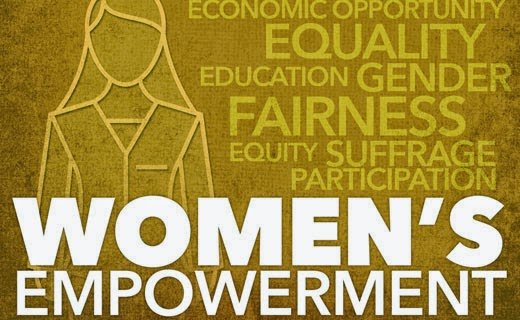Study shows Non-Heterosexual Women Are More Likely to Exhibit PTSD, Use Cannabis

Gretchen Moore joined the U.S. Air Force in 2005, eager to serve her country. With multiple deployments to the Middle East, she also experienced the trauma typically associated with war.
“I have [post-traumatic stress disorder symptoms] when I drive. For whatever reason, the tar on the side of the road looks like blood to me. Like it turns into blood. I see blood all the time on the road. I get very nervous with things on the sides of the road,” she said.
Then, a moment many women fear: Moore, a self-identified lesbian, was raped by a man she worked with while serving in the Air Force’s Security Forces in 2008. As she struggled to make sense of and deal with the assault, her superiors at Tinker Air Force Base in Oklahoma City took her weapon and relieved her of her policing duties.

“I felt like I was hidden. I quite literally was removed from the roster,” she said. “I went from working flight to relieved of duty, to quality control, to mobility, to cleaning the dorms where I was raped,” Moore said in a recent interview with Weedmaps News.
A fellow veteran with post-traumatic stress disorder (PTSD) suggested she try cannabis. The results, she says, were instant.
“I immediately felt better — 100 per cent,” Moore said. “It keeps me calm because I’m a very uptight individual when I’m sober. I like the me that’s not uptight.”
Because of the Department of Defense regulations banning the use of marijuana, Moore eventually tested positive for THC through urinalysis and was discharged from the Air Force. Moore says the symptoms of PTSD can be overwhelming, especially when she sees someone who resembles her attacker.
“It’s not fun to be like that. It’s dangerous, in my situation, to be that uptight. I just react, and that’s not a good thing.” To keep control, Moore says she typically goes somewhere she can smoke marijuana.
Study: Non-heterosexual women have greater PTSD symptoms
Sexual minority women (SMW) with PTSD have more intense symptoms and use cannabis at a greater rate than heterosexual women to manage PTSD symptoms. That’s the working theory of a December 2018 study produced by Louisiana State University’s psychology department.
SMW are those who are on the LGBTQIA spectrum. The acronym stands for lesbian, gay, bisexual, transgender, queer, intersex, and asexual. The study found that SMW reported more frequent cannabis use and greater PTSD symptom severity than heterosexual women.
The study found that lesbian women are six times and bisexual women more than 11 times more likely to use cannabis.
Physician Says Medical Cannabis Helps
Dr Jeremy Boucher is an anesthesiologist in Oklahoma City who pursued additional training in PTSD therapy from the Department of Veterans Affairs (VA) National Center for PTSD. He also evaluates patients in search of an Oklahoma Medical Marijuana card.
“While the military certainly is a huge focus for novel PTSD treatments, the groups we forget regularity are children, victims of domestic abuse, first responders, and especially rape victims. It is frequently said that ‘rape victims are the only victims that never leave the scene of the crime,’ and in this case, it is both figurative and literal,” he wrote in an email for Weedmaps News.
Boucher explained current thinking that PTSD is “a psychological state resulting from neuroplasticity, which is experienced recurrently as a result of a hyperactive sympathetic nervous system.” He’s talking about the “fight or flight” instinct. He explained that once the trauma is over, people who develop PTSD don’t return to a normal state. Boucher became interested in cannabis as a medication while in medical school.
“When I finally got to a point in my career where I could obtain additional education in various areas that I wanted to learn, I took a four-day course on Medical Cannabis for Physicians in 2011 and I have been voraciously reading all I can find on the topic ever since.”
Because of the limitations on cannabis research by the federal government, very little research to help understand just how cannabis works with the human body is approved. The hurdles researchers must overcome to study the medicinal effects of cannabis, are myriad.
“Medical cannabis works because it has diverse actions at innumerable sites to help restore the homeostasis that has been disrupted by the traumatic event, which is propagated by the characteristics of the illness,” he wrote “Right now, we cannot say it cures PTSD. On the other hand, we can say that it alleviates, to some degree, virtually all of the pathognomonic characteristics.
“There is no definite answer to why medical cannabis helps PTSD, especially since we are not even sure exactly how PTSD develops. The question we have to answer is: how do we convince these patients or treat them with a methodology such that it helps them to begin to live again; not just survive?”
Recovering from Trauma
In the two years following her discharge from the Air Force, Moore chased failed relationships, was unemployed, and not sure what she might do for work. As she learned more about when and how to use cannabis, she said, her life improved. Now, she’s employed full-time and is able to support herself and her partner. They’ve even made steps towards starting a family.

“I never even left my apartment before,” Moore said. “I feel like I can go out and enjoy myself, instead of being paralyzed by fear, and refusing to do anything other than leaving my bedroom and go to the living room. I’m worthy of having a long life. I don’t feel unworthy anymore.”
Source – Weedmaps
Sign Up to Our Newsletter
Get notified about exclusive offers every week!















